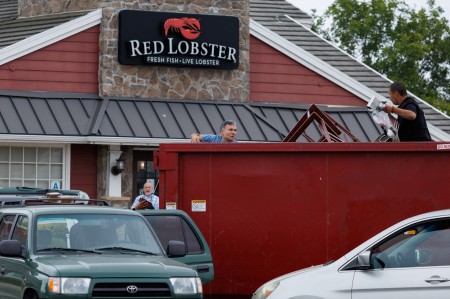By Dietrich Knauth
NEW YORK (Reuters) – Red Lobster, which filed for Chapter 11 bankruptcy in Florida on Sunday night, is investigating the role its majority owner Thai Union played in the restaurant chain’s “endless shrimp” promotion that caused $11 million in losses, court documents showed.
Red Lobster said the debacle was part of a pattern of mismanagement by the global seafood company that owns most of its equity and supplies shrimp to its restaurants.
Red Lobster, with about 550 casual dining restaurants in the U.S., had offered a $20 endless shrimp dish as a limited-time promotion. Former CEO Paul Kenny made it a permanent, year-round option in May 2023 despite “significant pushback” from other management team members, the documents said.
Some Red Lobster restaurants soon faced major shrimp shortages. Around the same time, it eliminated two breaded shrimp suppliers, leaving Thai Union with an exclusive deal that led to higher costs, current CEO Jonathan Tibus wrote in the filing.
“Thai Union exercised an outsized influence on the company’s shrimp purchasing,” Tibus wrote. “The Debtors are currently investigating the circumstances around these decisions.”
Thai Union could not immediately be reached for comment on Monday.
Red Lobster, with $294 million in debt, plans to close some underperforming restaurants and sell the rest to a group of its lenders including Fortress Investment Group.
Red Lobster, based in Orlando, Florida, is one of the world’s largest seafood restaurants with 54 outlets outside the United States and about 36,000 employees. It purchases 20% of all North American lobster tails and 16% of all rock lobsters sold worldwide, the documents showed.
Red Lobster said its business has suffered from poor management decisions, high inflation, unsustainable rent costs, and increased competition. It posted a $76 million net loss in 2023, and recently closed 93 restaurants to cut costs.
(Reporting by Dietrich Knauth; Editing by Alexia Garamfalvi and Richard Chang)


